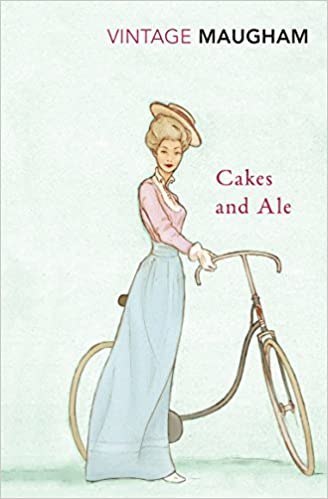Martin Fone's Blog, page 171
January 18, 2021
The Silver Spoon

The Silver Spoon – John Galsworthy
Galsworthy’s Forsyte Chronicles stretched to nine volumes and the Silver Spoon in some senses marks the midway point, being the fifth in the series and the second of the Modern Comedy trilogy. Published in 1926, it follows the story of Soames Forsyte and his daughter, Fleur, now married to Michael Mont and mother of a son, Kit, described as the eleventh baronet.
There have been some cosmetic changes at Fleur’s house. Gone is the Chinese décor and the Pekinese has been replaced by a new pooch. Fleur, though, is still the same social gadfly, collecting admirers and the company of the movers and shakers in London society. It is this trait in her character that leads to the central moment of the book, a libel case. At one of her soirees, Fleur is accused by Marjorie Ferrar of being a snob, neither having the wit nor personality to create the sort of salon that she is desperate to have. Soames overhears the remarks, calls Marjorie a traitress and orders her to leave. As neither side will back down in what today would seem to be a storm in a cocktail glass, the matter goes to court.
Soames uses all his guile to build up a convincing defence for Fleur. The case does offer Galsworthy the opportunity to explore the change in moral attitudes amongst the younger crowd in London society, raising questions of morality and comparing and contrasting standards of behaviour with the more staid and stuff outlook of Soames’ generation. Francis Wilmot, a young American guest of Fleur’s, who brings her news of her long-lost lover, Jon, falls under Marjorie’s spell and betrays his host. Although Fleur prevails, it is at some cost, becoming a social outcast and feeling that she cannot remain in London and play the part she desires in society persuades her doting father to accompany her on a trip around the world.
Fleur’s husband, Michael Mont, has left the world of publishing and has secured himself a seat in Parliament. He has become an advocate of an eccentric political philosophy, Foggartism, one of whose tenets is to ship youngsters off to parts of the empire, to ease unemployment at home and provide a labour force to the colonies to enable them to supply the motherland with goods and produce. Despite general ridicule and the failure of some social experiments to help the workers, Michael is determined to soldier on and feels that he is unable to accompany Fleur on her jaunt, only promising to join her when Parliament is in its summer recess.
One of the interesting aspects of the Chronicle is the change in treatment of Soames. In the early books he was clearly a villain, for whom the reader was invited to have little sympathy, set in his ways, concerned only for property, his art collection and money. Much of that remains, of course, but Galsworthy’s portrayal appears more sympathetic. He is a lost soul in a world he barely recognises, let alone understands. What he thought was an act of kindness to his daughter, the relentless pursuit of a frivolous court case, has backfired and left her unhappy. His reflections are often astute, amusing and filled with regret.
And the silver spoon? The sense of entitlement that pervades through the book, personified in the behaviour and attitudes of Fleur and the air of expectation that surrounds young Kit.
January 17, 2021
Pizza Of The Week (3)

If you like a cheesy pizza, perhaps the place to go to is Déliss’ Pizza in Lyon as chef Benoït Bruel has recently created a 12-incher complete topped off with 254 varieties of cheese. This comfortably beat the previous world record of 154 cheese toppings set by Australian chef, John Di Francesco.
Bruel has not released a list of all the ingredients but cheese cognoscenti claim that the pizza contains, inter alia, Tomme Artisanale Suisse de la Venoge aux truffes, Rocamadour, Manigodine, La Vieielle Louche, Quattrocento, raclette, Picolin, Comté 9 mois, an eight-month Comté 8, and Chaource. There is a video showing Bruel meticulously sampling and weighing each cheese ingredient, all sourced in la belle France.
The resulting pizza weighed an astonishing more than one-and-a-half pounds, cost about €1,000 to make and slices were sold to lucky punters for around €50 each.
I will never look at a quattro formaggi in the same way again.
January 16, 2021
Pie Of The Week

Due to my wife’s recent fall I have had to acquaint myself with the kitchen, for decades almost terra incognita to me, save for the sink and the kettle. Still, one good thing that came out of it was that I found that I was quite a dab hand at cooking pies. Mind you, I’m not sure I’m ready yet to attempt an assault on a world record established recently by a group of chefs at the Madinat Jumeirah resort in Dubai.
In an event organised by the Emirates Culinary Guild and USA Pears, the group of culinary wizards baked 2,209 pear pies and put them all in a line. The previous record of 1,608 pies set in Australia in 2016, crumbled in the wake of such a concerted effort.
And what happened to the pies? They were donated to a food charity, Sahem for Hope. Let’s hope the recipients like pears.
January 15, 2021
Cantering Through Cant (15)

When times are hard and money is in short supply, it is very tempting to be manoeuvering the Apostles, a term defined by Francis Grose in his A Classical Dictionary of the Vulgar Tongue, as “robbing Peter to pay Paul ie borrowing of one man to pay another”. At best, it is a short-term policy as eventually all the Apostles will require their due. In Grose’s day, infractions of the law could see the unfortunate felon marinated; “transported to some foreign plantation”.
To stand Moses, though, was “to have another man’s bastard child fathered upon him” and to be “obliged by the parish to maintain it”.
We tend to associate the word mettle with courage as in “showing your mettle” but in Grose’s day it also meant “semen”. To fetch mettle was the “act of self-pollution”. Is it too fanciful to think that its legacy lives on in the use of spunk to describe someone who is showing undue bravery?
“The difficult I will do right now”, sang Billie Holliday in her 1951 song Crazy He Calls Me, “the impossible will take a little while”. The Georgians, though, when set an impossible task might declare that they had been asked to milk the pigeon.
And finally, to satisfy those who are maunding for more, the cant term for “asking” or “begging”, the mobility, the mob, the antithesis of the nobility, applied the names of some of the roles associated with the royal court to their world. The master of the mint is a gardener, while a master of the rolls is, inevitably, a baker and a master of the wardrobe “one who pawns his clothes to purchase liquor”.
More anon.
January 14, 2021
Cakes And Ale

Cakes and Ale – W Somerset Maugham
Taking its title from a line given to Sir Toby Belch in Twelfth Night – “dos’t thou think because thou art virtuous there shall be no cakes and ale? – this entertaining novel from 1930 explores as its theme the hypocrisy inherent in the human soul. It was a controversial novel on its publication, many critics seeing Maugham’s portrayal of Edward Driffield, supposedly the greatest novelist of his generation although many cannot fathom why he is held in such high esteem, as a thinly disguised attack on the recently deceased Thomas Hardy.
The book is written in the first person, the narrator being Maugham’s alter ego, William Ashenden. One of Maugham’s traits, irritating to some, is to launch, almost without any real reason, into some philosophical diatribe. Here he pontificates upon the limiting effect of using the first person singular in narration: “sometimes the novelist feels himself like God and is prepared to tell you everything about his characters; sometimes, however, he does not; and then he tells you not everything that is to be known about them but the little he knows himself; and since as we grow older we feel ourselves less and less like God I should not be surprised to learn that with advancing years the novelist grows less and less inclined to describe more than his own experience had given him. The first person singular is a very useful device for this limited purpose”.
Ashenden’s narration concerns itself with Driffield’s early life- as a young boy, he knew the writer. Driffield’s second wife commissions an authorised biography of her husband and Ashenden is brought in to recollect some of his early memories of Ashenden and, particularly, of his young first wife, Rosie. It leads him to reflect on his own childhood, his curious relationship with the novelist and, in particular, Rosie. She might be termed a good time girl, a woman of (relatively) easy virtue, who lived for the day and hang the consequences. Driffield’s second wife would prefer to airbrush her out of the story but, in Maugham’s eyes, although she pushes out the moral boundaries of the time she is true to her heart and sincere.
The other characters, who judge Rosie harshly, are the ones who are the hypocrites, each with their own foibles and wearing the holier-than-though crown precariously. Perhaps the underlying weakness for me of the book is that Maugham does not invest the same level of understanding and, indeed, sympathy on his other characters. He is content to dissect them with his scalpel of dry and sardonic wit. Ironically, Ashenden himself is also guilty of a certainty duplicity and hypocrisy, content to betray the sanctity and intimacy of his first-hand knowledge for the benefit of his art.
#It is tempting to think that as a closet homosexual duplicity and deception were themes close to Maugham’s heart and writing the book was a cathartic, if dangerous, experience. There may be something in that, but whilst entertaining and a thoroughly good read providing fresh perspective in the author’s customary elegant prose, there is something cold-hearted, even emotionless, about it. Ashenden is too detached as a narrator to make the reader really care about the characters. The furore the book caused was simply because too many were around at the time of publication who thought they could recognise who the characters were based on rather than because it was conveying anything truly shocking.
Beware also of the quotations from critics on the cover. I would not say that it was a “wickedly satirical novel about contemporary literary poseurs”. In fact, it is conspicuously light in that respect, although clearly knowledgeable about all the aspects of the London literary set. I was left thinking that the book was neither one thing nor another, lacking the conviction needed to make it a major work; a criticism one could perhaps make of Maugham too.
January 13, 2021
The Nursing Home Murder

The Nursing Home Murder- Ngaio Marsh
Published in 1935, this is the third in Marsh’s Inspector Alleyn series and, frankly, the first that I have actually enjoyed. The mischievous side of me is tempted to say this us because it is the only one of her books that she co-wrote, with H Jellett, a surgeon, to get the medico elements right. The Times, no less, was impressed with the book, though, claiming it was one which “transformed the detective story” from a puzzle to a full-blown and fascinating novel. Agatha Christie has one of her characters in Murder in Mesopotamia reading it.
Some would say that we have too many murders in nursing homes over the last year or so in real life to want to read about one in fiction, but we need to be clear on terminology. In the context of Marsh’s novel, it is more akin to a private hospital than a resting place for the old and infirm. The patient, Sir Derek O’Callaghan is the Home Secretary and is tasked with steering through the House of Commons a bill to deal with the growing anarchist problem. He has already received several death threats and to add spice to the mix has had an affair with a young lady which he has rather brusquely terminated. The woman scorned, who just happens to be a nurse, has sent him impassioned and threatening letters.
O’Callaghan has been suffering from abdominal pains and his sister, Ruth, is always suggesting quack cures to give him some relief. He also has a violent argument with Sir John Phillips, who happens to be a surgeon and is carrying a flame for the nurse. When O’Callaghan collapses in the Commons he is taken to the nursing home aka private hospital where he has to have life-threatening emergency surgery and imagine his surprise and horror when he discovers that Phillips is to perform the operation together with the nurse he has jilted. Amongst the other medics in attendance there is Nurse Banks who is an anarchist sympathiser and an anaesthetist who has an unfortunate track record.
In the lead up to the operation O’Callaghan receives three injections, each from someone who has a motive to see to his demise, and surprise, surprise, he doesn’t survive the procedure. O’Callaghan’s wife, Cicely, doesn’t accept that this was an unfortunate outcome of the operation and presses for a post-mortem and full investigation. Inspector Alleyn, with his journalist sidekick, Nigel Bathgate, is called into investigate.
During the course of the novel we plunge into the murky world of political agitators and meet a bewildering array of characters. There are red herrings aplenty – was I the only one who began to suspect Ruth? – and the narrative jumps around so much that at times it is difficult to keep track of what is going on. Alleyn pulls most of the strands together by getting all the suspects together – this seems to be part of his modus operandi – and reconstructing the events around the operation. The person with a guilty conscience cracks under the strain.
Perhaps because of the large cast of characters, much of the characterisation is weak and the main protagonists are uninspiring and bland. Where Marsh scores is in creating the atmosphere of the operating theatre, presumably drawing upon Jellett’s expertise.
The patient, Marsh’s corpus, is showing some sign of improvement, but it will be sometime before I am convinced that her reputation as one of the doyenne’s of crime fiction is warranted.
January 12, 2021
Theft Of The Week (8)

The highlight of many a TV programme or a movie is a car chase where one vehicle desperately attempts to elude the attentions of the other, a chase involving high drama, tension and spills and thrills. Such chases, fortunately, are rarities outside of the entertainment studios but a gang of thieves found themselves being pursued down the A6 towards Lyon, initially by the owner of the luxury hotel, the Domaine de Rymska Saint-Jean-de-Trézy, situated 30 miles from Beaune, and then by a police patrol car.
The thieves had got away with a haul of grands crus Burgundy wines from the cellars of the hotel, estimated to be worth €350,000. The previous day thieves had got away with €200,000 worth of fine wines from the cellar and the hotelier was understandably keen to bring them to justice. As the police car gained ground, the thieves laid their hands on the nearest objects they could find and aimed them at the pursuing car’s windscreen.
Of course, the nearest objects to hand were some bottles of grand crus. What a waste. They missed their target and no one was injured. The chase came to an end when the thieves crashed into a road toll barrier some 22 miles north of Lyon and legged it. The police are looking for at least three men.
January 10, 2021
The Lost Game Of Snap-Dragon

Those who bemoan the influence of ‘Elf and Safety on the way we conduct ourselves may lament the disappearance of the wacky game of Snap-dragon which was particularly popular around Christmas. It is fascinating to speculate how many hosts sent their guests to bed on Christmas Eve nursing blistered hands and scorched tongues. The game, which one contemporary noted “provided a considerable amount of laughter and merriment at the expense of the unsuccessful competitors”, was simple enough and even merited a definition in Samuel Johnson’s Dictionary of the English Language, published in 1755.
All you needed was a bowl, some brandy, and raisins. First you placed the raisins in the bowl and then poured the brandy in. Your guests, trembling in anticipation of the excitement and perils ahead of them, would be commanded to stand around the bowl, which was strategically positioned in the centre of the table to protect the players from the inevitable splashes of burning brandy. The brandy would then be set alight and the object of the game was to plunge your hand into the fiery liquid, extract a raisin and eat it.
Johnson defined it more eloquently; “a play in which they catch raisins out of branding brandy and, extinguishing them by closing the mouth, eat them”. Richard Steele game some colour in his piece for Tatler, commenting “the wantonness of the thing was to see each other look like a demon, as we burnt ourselves, and snatched out the fruit”. To jolly things along and heighten the tension even more, you could chant a rhyme at the start of the proceedings; “with the blue and lapping tongue/ many of you will be stung/ Snip! Snap! Dragon!/ For he snaps at all that comes/ snatching at his feast of plums/ Snip!, Snap! Dragon!”
The game’s origins date back to at least the sixteenth century, gaining name checks in Shakespeare’s Love’s Labour’s Lost (1594) and Henry IV Part II (1598). The 18th and 19th centuries saw it at its height of popularity. Jane Austen’s niece, Fanny Austen Knight, wrote in 1806 “different amusements every night? We had Bullet Pudding, then Snap-Dragon and…we danced or played cards”. The game of Snap-Dragon is mentioned in such disparate literary sources as Charles Dickens’ Pickwick Papers, Lewis Carroll’s Through the Looking Glass and Anthony Trollope’s Orley Farm. Indeed, the game was part of the Yuletide tradition until its popularity was extinguished early in the 20th century when people became a little more attuned to thinking that singeing guests was not playing cricket.
So popular was the game that the distinguished scientist, Michael Faraday, was moved to give a chemical explanation of the Snap-Dragon phenomenon in his The Chemical History of the Candle, published in 1860. His thesis was that the raisins acted like miniature wicks, and rather like when you pour brandy on a Christmas pudding, it is hot but not hot enough to incinerate the fruit. Even so, for the unwary there was a nasty treat in store.
If you did not have any raisins to hand, almonds would do and any flammable drink could replace brandy. A variant of the game involved the placing of a lighted candle in a cup of ale or cider and the player was invited to drink without singeing their face. A beard or moustache would be a distinct handicap. In the United States the game was associated with Halloween as much as Christmas.
To add extra spice to the proceedings, one of the raisins had a gold button attached to it or, failing that, was designated as the lucky fruit. Whoever succeeded in extracting the special raisin was given a favour or treat of their choosing. In another variant, whoever extracted the most raisins was predicted to meet the love of their life within the next twelve months. I wonder if they did.
Theft Of The Week (7)

It is remarkably easy to inadvertently make a call on your mobile phone. Often known as handbag calls, the risk is particularly high if you carry your phone in the back pocket of your trousers. The moral of this story is be careful where you store your phone when you are carrying out a burglary.
Staffordshire Police report that a man unwittingly made an emergency call when he sat down and activated his phone in his back pocket when he sat down. Unfortunately for him, he was in the middle of committing a burglary and the emergency call centre were able to hear what he and his accomplice were up to. The burglar hadn’t realised what he had done and the phone was still connected when patrol cars arrived at the scene and felt the collars of him and his colleague.
Unlucky. Next time he will take more care where he stores his phone.
January 9, 2021
Children’s TV Show Of The Week

In my day, children’s TV consisted of little more than fifteen minutes sitting down in front of a small, black and white flickering TV screen, enthralled by the derring-do of Andy Pandy, Bill and Ben and the Woodentops seem aeons ago. This all seems rather tame and a tad innocent when compared with the fare that is aimed at them now. Every now and again a show will emerge that will seek to push the boundaries that little bit further. One such is a new animated show launched by the Danish state broadcasting company, DR.
The central character, John Dillermand, is blessed or cursed with an enormously long penis, so long and extraordinary that he can use it to perform rescue operations, etch murals, hoist a flag, and even steal ice-cream from other children. Aimed at 4 to 8-year-olds it tells the story of a man with the world’s longest penis and the hardships and ordeals that his world-breaking genitals require him to overcome. Subtle the programme is not as Diller is Danish for a penis and mand means man.
Advocates of the show claim that while Dillermand is impulsive, not always in control and makes mistakes, he always makes good the situation his penis has caused in the end. Critics claim that it is just unsuitable for children of that age.
DR have previous in the poor taste stakes. A popular character in one of their shows, Onkel Reje, curses, smokes a pipe and eschews bathing while last year a show entitled Ultra Smider Tojet, translated as Ultra Strips Down, presented a group of 11 to 13-year-olds with a panel of naked adults.
Makes even The Magic Roundabout seem tame. Time for bed.



